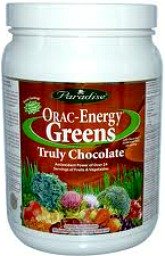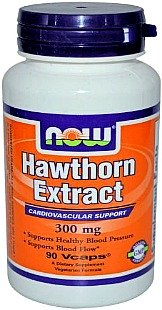Mediterranean diet menu: It is more than just food
Mediterranean diet menu mainly consists of natural, unprocessed foods. However, there are some exceptions such as ketchup or tomato sauce.
It is widely accepted as one of the most healthiest diets in world which can help reduce cholesterol, blood pressure as well as the risk of diabetes and heart disease. Basic principle is, more fiber, less sugar.
Mediterranean diet meal plan should be full of seasonal fruits and vegetables, moderate amount of natural carbohydrate sources, healthy fats and spices. Besides eating these mediterranean foods, you should limit intake of red meat, sodium, processed and high calory foods.
Also, mediterranean diet doesn't apply only to food. It is a way of life with rich social interactions which goes beyond the diet and foods you eat.
MEDITERRANEAN FOODS
Olive oil is one of the most stable foods on the mediterranean diet menu. Many people in the coastal region of Croatia as well as in other mediterranean countries, cultivate olives on their own land and produce their own produce oil. Some even sell it on the local markets.
Since extra-virgin olive oil can be quite expensive, producing your own can help you save decent amount of money.
It is very simple to add olive oil to your diet. You can just pour it over your salad, meat, potatoes and most other foods. Although it can be used for cooking, people mainly use it to spice the food and enrich its nutritional value.
Fish ain't consumed as often as before, anymore, as some people may think. First reason is the price since there are cheaper mediterranean foods, especially in time of recession.
However, most people try to eat it once or twice per week. During summer, some people can eat fish every single day. However, this mostly applies for people which have their own boat and basic fishing gear.
Besides the price, fish these days is polluted with so many toxins because of which many people don't consider it to be as healthy as before. So, even mediterranean diet meal plan changed a bit, over time.
Red wine is stable part on mediterranean diet menu. However, young adults aren't that big fan of red wine but their parents and especially older men, are. My father didn't have a habit of drinking red wine as a youngster but as he got older he picked up the ritual from his father.
I have noticed the same thing with me since I am getting used to taste of red wine. Also, since it has been shown to reduce the risk of heart disease, I tend to drink a glass of red wine per day with one of my meals.
Figs are common fruits, here on the mediterranean. Although they mature in summer, figs are available throughout the year since they are left on the sun to dry. This makes them resistant on spoilage.
These fruits are also good source of fiber as well as vitamins and minerals but what is great about them, is their affordable price considering how nutritionally dense they are.
Tomatoes or tomato sauce is essential part of mediterranean diet menu. It is the best natural source of powerful carotenoid lycopene which has beneficial effect on the heart muscle and blood vessels.
Although it is mainly added to pizza's and pastas, it can be served as salad and added to soups or sandwiches, thanks to sauces and ketchup. However, try to use whole wheat flour when making pizza and whole grain bread for sandwiches, if you are making these kind of meals.
Potatoes are among the prefered mediterranean foods, when it comes to carb sources on mediterranean diet meal plan. Although there are better carbohydrates rich foods with lower GI index, potatoes are favorites, thanks to their taste.
They are also a great source of carotenoids, lutein and zeaxanthin, which makes potatoes and tomatoes the perfect match.
Chlorogenic acid that is found in large quantities in potatoes, has the ability to lower blood sugar levels thereby reducing the risk of diabetes.
Nuts, next to fish and olive oil, are the main source of healthy fats on mediterranean diet menu. However, walnuts are the favorites but their price is the major problem because of which people don't eat them as much as they used to.
On the other hand, some people here have trees of walnuts, in front of their house. If the climate and area of your residence allow, you can consider planting a seed which may one day provide you with a free source of walnuts or some other type of nuts.
Lemons and other citrus fruits are great source of bioflavonoids. Actually, we have several trees of lemons in our garden. Although lemonade is amazing refreshing drink during hot summer days, I try to eat them raw, every once in awhile, since they provide more nutrients.
While eating raw lemons ain't the most appealing idea, eating raw oranges is like vacation for my taste buds.
Squeezing lemon juice on fish is one of helpful tricks on mediterranean diet meal plan. It improves the taste and enriches the nutritional profile of the meal. You can also pour some lemon juice over salads and other meals, too.
Mediterranean spices such as garlic, parsley, oregano, basil, thyme, lemon balm, sage, rosemary and bay leaves have a special place on mediterranean diet menu. They improve taste of food, neutralize carcinogens and kill bacterias which makes them very useful weapon in fight against heart disease.
Spicing up foods, especially meat, is a must here in Croatia. While some add spice or two, I like to go crazy with mediterranean spices and add a little bit of everything.
Vegetables and vegetable salads are one of the most healthiest mediterranean foods on the menu. Most often salads are made of green leafy vegetables, cucumber, tomatoes and onions.
However, our grandma's in the past grow their own vegetables such as collard greens and broccoli which were pesticide free unlike most foods today. Thanks to mediterranean diet menu and these kind of foods, a lot of them lived to be 90 to 100 years old.
LOCAL SPECIALITES
Besides these foods, there are also a few Dalmatian specialties on the mediterranean diet menu, here in Croatia, such as Soparnik.
Soparnik is our version of pizza which is actually a pie made from spinach. It is made from spinach, olive oil, garlic, parsley, few other spices and flour. It is local speciality which can be quite delicious once you get used to its unique taste.
CONCLUSION
As I said in the beggining, the diet is a way of life which goes beyond mediterranean foods. Family gatherings are part of lifestyle, especially during the spring and summer, when there is a lot of sun and the days are very long. Sunday family barbecues are one of the best parts of the summer.
Besides diet plan, the way you cook the food, also matters. It shouldn't be overcooked and it must be spiced or even marinated, especially meat or fish. This will reduce the risk of carcinogens which may develop, when cooking on the grill.
Since we live on the sunny mediterranean, people are constantly out and active. The sun which increases vitamin D production, family gatherings and being constantly in the move, are also one of the reasons why mediterranean diet menu is associated with the lower risk of heart disease.
It is not just the diet.
- Heart Healthy Diet: Simple Tips and Guidelines
- Learn everything you need to know about heart healthy diet and find the right one for you. Implement few simple tips for immediate benefits.
- Heart Healthy Foods: How to Get the Most from Them
- Heart healthy foods can improve cardiovascular system function. Foods good for the heart are bursting with vitamins, minerals and rejuvenating phytochemicals.
- Herbs for the Heart and Cardiovascular System
- You have heard for hawthorn and garlic but there are few other herbs for the heart which can help in treating heart disease, naturally.
- The Best Heart Health Supplements
- Besides fish oil, there are several heart health supplements which can be useful. This includes Coenzyme Q10, Salicin, vitamin D3 and few others.
- Heart Healthy Spices
- Although there are many heart healthy spices out there, each of them can help prevent and treat heart disease in its own way, thanks to different types of flavonoids in these heart spices.
- Stress and Heart Disease: How are They Connected
- Stress and heart disease are closely related. In order to decrease the risk of heart problems, we have to learn how to handle the stress and treat its consequences, if we are unable to avoid it.
- Cardio Exercises for the Heart and Cardiovascular System
- Cardio exercises are vital part of natural heart disease treatment. However, which kind of heart exercise you should preform, varies from person to person.
- Good vs Bad Cholesterol: How to Improve Cholesterol Values
- Good vs bad cholesterol conflict is somewhat misunderstood. There is no good or bad cholesterol but only high or unbalanced cholesterol.
- Good Fats vs Bad Fats: Nutritional Facts and Guidelines
- What is the real truth when it comes to good fats vs bad fats? How much dietary fats should you consume daily and what are the best food sources of healthy fats?
- High Blood Pressure Remedies
- High blood pressure remedies range from tips and lifestyle modification to herbs and supplements. However, the method that works for someone else, may not work for you.
- Normal Heart Rate: How is Regulated and Influential Factors
- Normal heart rate varies from person to person. Although, age affects resting heart rate, there are many other factors that can raise or decrease heart rate.
- How to Lose Fat: Overlooked Tips for Weight Loss
- How to lose fat is surely one of the most intriguing questions for so many people. However, the answer is very simple. Eat healthy foods, perform fat burning exercises and take care of your hormones.
- Hormones and Heart Disease Connection
- Don't neglect hormones and heart disease connection. If you want to treat or prevent heart disease you have to balance your hormones.
- Heart Disease and Immune System Connection
- Heart disease and immune system connection is often overlooked, while trying to improve cardiovascular system function. However, there are several things you can do to change this.
- Dental Health Heart Disease Connection: Facts and Tips
- Dental health heart disease connection is one of three overlooked factors, along with hormones and immune system. However, with smart and effective approach we can change this.
- Causes of Heart Disease
- There are many causes of heart disease and factors that can increase or decrease your risk for developing heart related problems. Check how to turn the tide in your favour.
- Symptoms of Heart Disease
- There are few main symptoms of heart disease. Find out which are they, how to recognize them as well as my personal experience with some of them.
- Diagnosis of Heart Disease
- Accurate diagnosis of heart disease is the first step toward recovery. You can't start with treatment before you know what kind of disease you have, obviously.
- Treatment for Heart Disease: Medications and Surgeries
- Standard treatment for heart disease consists of surgeries, medications and devices. Which one is right for you, depends on your condition.
- Heart Disease Blog
- This is a blog about natural remedies, personal stories, helpful herbs and supplements, workout program as well as other tips and facts which may help people faced with heart disease.
- Contact Me
- Ask questions and leave comments about this site here.
- About the Author of Heart Health Guide
- About the author of Heart-health-guide.com website.
- Heart Health Guide Sitemap
- This is sitemap of Heart Health Guide.com. If you want to get better overview of informations on this website, you can get it here.
Copyright © - Heart Health Guide - All Rights Reserved.



